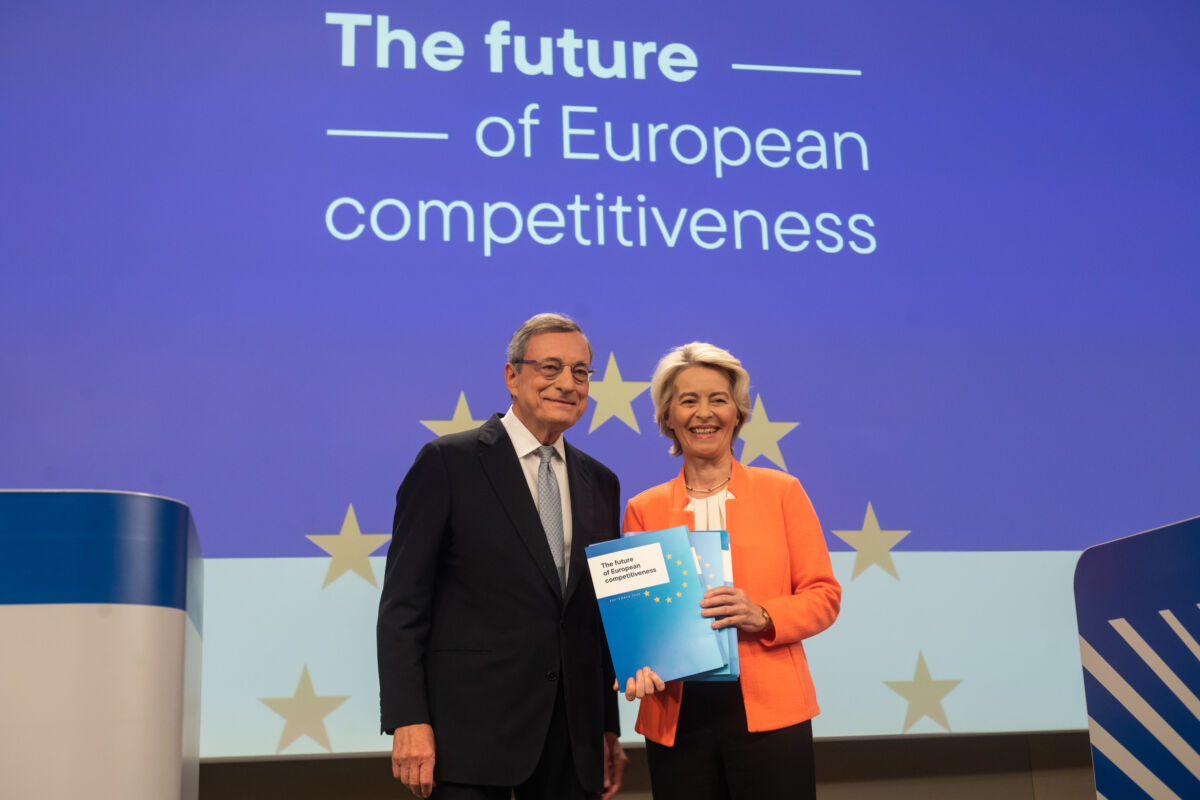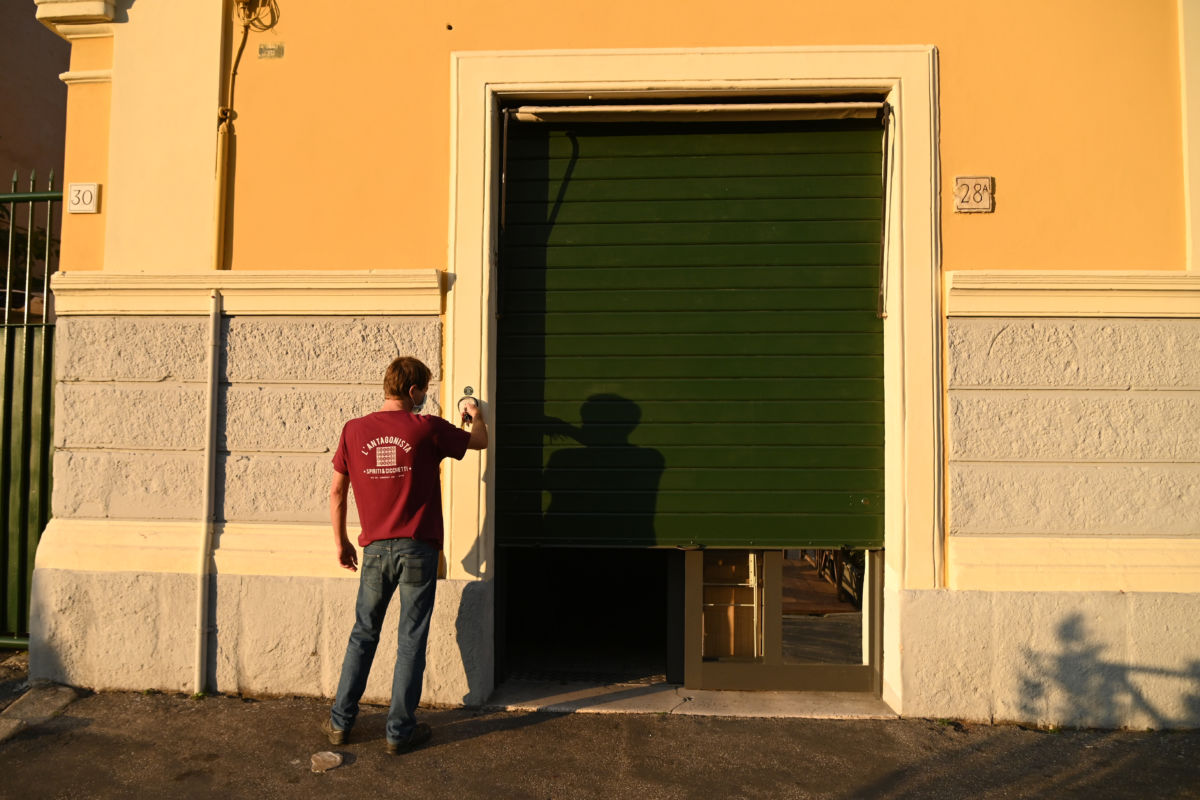In the wake of the Draghi report and the EU Competitiveness Compass, ‘competitiveness’ is again dominating debates about the present and future of EU economies and societies, despite being long criticised as an elusive concept or a dangerous (and wrong) obsession.
This is hardly new. The search for competitiveness has shaped EU integration and policy discussions for at least three decades. It was already at the heart of the 1993 White Paper on ‘Growth, Competitiveness and Employment’ and the 2000 Lisbon Strategy. A decade later, the drive for competitiveness underpinned how the eurozone debt crisis was managed, legitimising austerity, wage restraint and the rise of precarious work in many countries.
This time, we’re being assured that competitiveness will bring about ‘good jobs’ and won’t come at the expense of wages and workers’ wellbeing. But will this really be the case? If recent developments are any guide, we have some very good reasons to be skeptical.
Skills and quality jobs – lost in the Compass
In the Competitiveness Compass, despite the initial claim that ‘[i]ncreasing competitiveness and productivity will go hand in hand with empowering people’, skills and quality jobs only make their first appearance on page 22 (of 26). Being included almost as an afterthought in the EU’s flagship economic strategy, combined with the lack of any legislative commitments, already suggests that they’re far from being a real priority.
What’s more, the Compass doesn’t list skills and quality jobs among its key ‘imperatives’ but simply as among the ‘enablers’ of competitiveness. This shift is also evident in the recently announced Union of Skills. Although the initiative includes some positive (if still vague) measures, it falls short of proposing a right to training during work time and tends to narrowly frame reskilling as necessary for businesses’ productivity and competitiveness.
Which means the message is crystal clear – businesses, and not people and workers, are seen as the agents of Europe’s prosperity.
This raises a fundamental question, namely what would happen if labour protections and decent wages were found to stand in the way of competitiveness? The Commission’s recent proposal for an Omnibus Simplification Package offers an early glimpse of the answer.
Regulatory ‘simplification’ and job quality – pulling in different directions
The commitment to quality jobs stands in direct contrast with the Commission’s broader push for regulatory ‘simplification’. Nowhere is this tension clearer than in the Omnibus Package, which seeks to reduce companies’ reporting obligations set by the Corporate Sustainability Reporting Directive (CSRD), the EU Taxonomy Regulation, and – most relevant in this context – the Corporate Sustainability Due Diligence Directive (CSDDD).
The CSDDD – which applies only to 3,400 large corporate groups in the EU (less than 0.1% of all companies) – requires firms to identify, prevent, and remedy human (including labour) rights violations and environmental impacts in their supply chains. Yet barely seven months after coming into force, the Commission is now proposing to delay its implementation by a year, reduce how often companies have to undertake regular assessments from every year to every five years, ditch civil liability for non-compliance, and limit due diligence only to direct suppliers.
This rollback follows consultations with two dozen business representatives and 31 ‘practitioners’ from big EU corporations (compared to two trade union representatives and ten NGOs). The result is a package that risks significantly diluting corporate accountability at a time when stronger – not weaker – rules are needed to raise social and environmental standards.
The backtracking on the CSDDD, alongside the CSRD’s reduced scope (now limited to very large companies), threatens to undermine working conditions at the lower end of supply chains, where labour standards are already under pressure. Risks concern not only workers hundreds of thousands of kilometres away but also those in our cities, peripheries and regions (including migrants) – think of the exploitative conditions in the fashion industry’s supply chains or the construction sector.
In short, while the Commission claims to prioritise quality jobs, its proposed simplification drive could potentially erode labour rights in the EU and beyond. Once again, the cost of EU competitiveness risks being borne by workers – especially those finding themselves in more precarious conditions – both in the ‘Global South’ and in Europe.
Competitiveness – a means to an end or an end in itself?
Thankfully, not everything is bleak. The announced Quality Jobs Roadmap and legislation on AI in the workplace could be a step in the right direction, as is the recently agreed Pact for European Social Dialogue. However, their place within the wider EU economic strategy seems ancillary at best.
By presenting skills and quality jobs as ‘enablers’ of competitiveness, the Compass redefines what should be an overarching social goal – fostering workers’ personal and professional development and wellbeing – as a tool for economic performance.
The underlying assumption is that productivity gains will then drive better wages and working conditions, aligning competitiveness with job quality. Even so, this is far from guaranteed. Much depends on social and power dynamics, as well as on policy choices that are largely absent from the Compass and the wider debate.
Formulating skills and quality jobs as competitiveness ‘enablers’ occurs within a broader shift within the Compass. At the outset, competitiveness has been framed as the silver bullet for solving all of Europe’s economic and social woes – which would then in theory lead to higher incomes and stronger social protection.
However, competitiveness gradually morphs throughout the document into the ultimate goal of policy action. This reaches a climax in the last section, which solemnly declares that ‘[t]he next years’ North Star must be the renewal of Europe’s competitive strength’.
In this context, every other objective – be it environmental sustainability, social welfare and inclusion, and respect for human and labour rights – is implicitly subordinated to the overarching objective of boosting competitiveness. The risk is that job quality is only prioritised to the extent that it enhances competitiveness, potentially limiting policy commitments to labour rights and protections that don’t align with this logic – as with the Omnibus Simplification Package.
This framing matters. As discourse experts remind us, language and narratives can become naturalised, shape our worldviews and – most importantly – narrow public debate, shuttering any space for alternatives.
With competitiveness becoming the be-all and end-all of EU policymaking, social progress and workers and citizens’ welfare should instead be Europe’s North Star. That’s why it’s time to reopen the debate on how we can achieve this broader social goal.






















